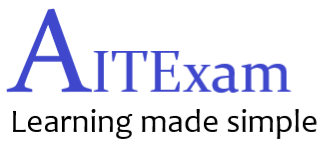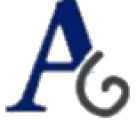The exam consists of 5 subject area’s:
Human Resources (15%)
Demonstrates an understanding of job descriptions and job-specific competencies.
Possesses the ability to plan and develop basic staff development procedures.
Possesses the ability to use audit procedures to evaluate effectiveness of training.
Demonstrates the ability to plan, implement, and evaluate associate health and safety programs.
Understands the importance of and proper process for exit interviewing.
Understands proper interviewing techniques.
Demonstrates an understanding of how to effectively train individuals to perform their duties.
Demonstrates an understanding of effective recruiting procedures.
Possess knowledge of workplace culture as it relates to the prevention of workplace violence, harassment, and hostility.
Demonstrates a working knowledge of staff professional development.
Demonstrates knowledge of performance based evaluation procedures.
Possesses the ability to plan, implement, and evaluate personnel policies.
Able to apply proper staff disciplinary procedures.
Demonstrates the ability to predict the overall effect of personnel policies on the organization.
Displays an understanding of how to manage a diverse workforce.
Possesses the ability to negotiate wages, salaries, and benefits.
Understands how to match qualifications of candidates to job requirements.
Understands the functions of the Nursing Services team and effective management of the Nursing Department.
Understands the function of the Activities Department.
Demonstrates an understanding of the various clinical pathways in rehabilitation.
Understands how to manage Physical Therapy staff.
Possesses an understanding of the various roles and services of Occupational therapy team members.
Understands the services provided by Speech Therapy.
Understands the role of Audiological Services.
Understands the functions of the Social Services team and the management of Social Services.
Understands the functions of the Dietary team and how to manage the Dietary department.
Understands the functions of the Housekeeping team, and how to effectively manage the Housekeeping department.
Possesses a working knowledge of the organization and management of Laundry services.
Understands the functions of the Maintenance team.
Demonstrates a working knowledge of the functions and management of Maintenance personnel.
Understands the functions of the Medical Records team.
Displays a working knowledge of pay scale administration.
Understands the application of employee retention techniques.
Understands proper overtime administration and non-exempt status.
Possesses knowledge of CNA training requirements.
Demonstrates a working knowledge of risk management policies.
Fully understands the process of physician credentialing.
Understands the Americans with Disabilities (ADA) law and its application.
Displays the ability to instruct staff on conducting appraisals.
Demonstrates the knowledge of and use of appropriate supervisory techniques.
Finance (14%)
Possesses a working knowledge of key financial indicators.
Understands the difference between cash and the financial statements.
Possesses a working knowledge of financial planning and interdepartmental financial/budgetary management.
Demonstrates a working knowledge of capital purchases.
Understands billing systems and methods.
Demonstrates the ability to perform payroll analysis.
Demonstrates a working knowledge of proper inventory management.
Demonstrates a working knowledge of the interconnectedness of the Prospective Payment System (PPS), the Minimum Data Set (MDS), and Resource Utilization Groups (RUGs).
Understands accounting procedures, including the chart of accounts.
Understands profit and loss statements, and balance sheets.
Understands policies relating to accounts payable and collection of accounts receivable.
Understands Medicaid & Medicare methods and systems, cost reports.
Understands business office segregation of duties and internal controls.
Demonstrates knowledge of budget process.
Understands how and possesses the ability to manage cash.
Demonstrates understanding of cash forecasting.
Possesses an understanding of third party payment organizations.
Possesses the ability to prepare a business plan, a feasibility study, and a return on investment (ROI) proposal.
Understands how to develop, plan and manage an interdisciplinary budget
Physical Environment and Atmosphere (13%)
Demonstrates the knowledge of practices to control mold and water damage, and the implications of water damage and mold contamination.
Understands the requirements for proper ventilation and climate control (heating, ventilation, and air conditioning – HVAC – systems).
Understands the proper maintenance needs and storage requirements for complex medical equipment.
Possesses the ability to run and assess disaster drills (internal and external).
Has the ability to develop, implement, and enforce a missing item policy.
Demonstrates ability to develop an equipment inventory.
Demonstrates the knowledge of and ability to apply infection control practices.
Possesses the ability to apply proper sanitation practices.
Demonstrates a working understanding of facility equipment and related safety practices/procedures.
Understands and can apply proper practices for linens and infection control.
Demonstrates a working knowledge of drug resistant bacteria (C.Dif, MRSA, and VRE).
Understands housekeeping safety and fire prevention.
Has a working knowledge of appropriate laundry equipment.
Demonstrates a working knowledge of preventative maintenance needs.
Understands how to use the concepts of disaster preparedness.
Demonstrates an understanding of the facility’s roles and vulnerabilities (including how to conduct an evacuation).
Leadership and Management (23%)
I. Demonstrates an understanding of offsite survey preparations.
II. Understands the entrance conference and onsite preparatory activities.
III. Demonstrates an understanding of the initial tour.
IV. Demonstrates an understanding of the process of sample selection.
V. Demonstrates a working knowledge of the process of information gathering.
VI. Understands the process of information analysis for deficiency determination.
VII. Understands the exit conference process.
Demonstrates an understanding of the medical records timeline and documentation standards.
Demonstrates a working knowledge of the Health Insurance Portability and Accountability Act (HIPAA).
Understands the plan for communicating HIPAA requirements.
Understands the Americans with Disabilities (ADA) law and its application.
Possesses an understanding of the impact of local (municipal, county, and special tax district) codes and rules.
Understands the survey process.
Demonstrates the knowledge of infection control regulations.
Knows Ohio’s governing bodies and how they impact the facility and staff.
Understands and can apply federal regulations regarding in-servicing.
Understands federal requirements regarding content of personnel files.
Understands and can apply federal regulations for nursing functions.
Understands and can apply federal regulations for resident Activities Department.
Understands and can apply federal regulations for Social Services.
Demonstrates an understanding of federal regulations for Dietary in-service education.
Understands and can apply federal regulations for Dietary.
Understands and can apply federal regulations for Laundry services.
Understands and can apply federal regulations for Maintenance.
Knows the federal governing bodies and how they impact the facility and staff.
Demonstrates a working knowledge and understanding of Medicare calculation.
Understands the reimbursement basics for respiratory therapy.
Possesses a functional understanding of the legal implications of various activities, procedures, or decisions routinely taken or performed in the facility.
Understands the reporting requirements of health care licensees.
Possess knowledge of referral patterns.
Demonstrates a working knowledge of referral conversion rates.
Demonstrates the ability to lead facility tours.
Possesses the skills to identify needs in the community and develop services to meet the needs.
Possess a knowledge of contract negotiations, contract management, and purchasing agreements.
Demonstrates knowledge of primary and secondary customer groups.
Has a working knowledge of the process for developing and implementing a marketing plan.
Displays an understanding of community volunteer agencies.
Demonstrates the ability to utilize community volunteer agencies’ resources in the care of residents.
Has a working knowledge of community liaisons (e.g. hospice) and resources.
Understands the importance of receiving and interpreting customer feedback.
Knows the most effective techniques for soliciting, receiving, and integrating customer feedback.
Resident Care and Quality of Life (35%)
Possesses an understanding of the demographics of the resident population and how resident services are affected.
Understands the role of Social Services in resident care.
Understands the role of Dietary services in resident care.
Understands the role of Dining services in resident care.
Possesses an understanding of the purpose of dietary resident rounds.
Possesses a working knowledge of dietary documentation.
Understands the role of Laundry in resident care.
Understands the role of Medical Records in resident care.
Demonstrates a working knowledge of a records retention schedule.
Possesses the ability to differentiate between the scopes of practice for RNs, LPNs, and CNAs.
Demonstrates an understanding of the role of the gerontological nurse in caring for aging residents in long-term care, and their families.
Possesses a working understanding of customers and programming.
Demonstrates an understanding of the components of Rehabilitation Services and their application to residents.
Understands the relationship of Occupational Therapy and Physical Therapy and co-treatment options for the residents.
Demonstrates knowledge of the preadmission and admission process service path.
Understands the relationship of Nursing to other departments.
Understands the relationship of Social Services to other departments.
Understands the relationship of Dietary to other departments.
Understands the relationship of Laundry to other departments.
Understands the relationship of Maintenance to other departments.
Possesses knowledge of discharge planning and the appeal process.
Understands proper therapy services utilization.
Possess the ability to facilitate the development and application of volunteer programs.
Understand resident care policies for restorative and rehabilitative services.
Demonstrates knowledge of the customers of Physical Therapy.
Demonstrates knowledge of the customers of Occupational Therapy.
Demonstrates knowledge of the customers of Speech Therapy.
Possesses knowledge of the customer service function.
Demonstrates an understanding of the emotional problems of aging in the lives of residents.
Understands the administrator’s role in interacting with family, friends, and loved ones.
Is able to discuss end-of-life issues and the role of the administrator in relating to the resident and their family when faced with death.
Understands the interrelationship in a resident’s behavior and their environment, including their intra- psychic and/or physical state.
Possesses the ability to discuss resident behavior under different environmental or physiological conditions.
Understands methods for assessing differential functioning (DIF) in the dementia population.
Possesses the ability to access and interpret facility quality indicators and quality measures.
Understands the concepts of benchmarking.
Able to assess facility performance using self-assessment tools.
We got this in 2012, it was last edited in 2010 by someone there. That is a long list of qualifications, our hats are off to ya.


